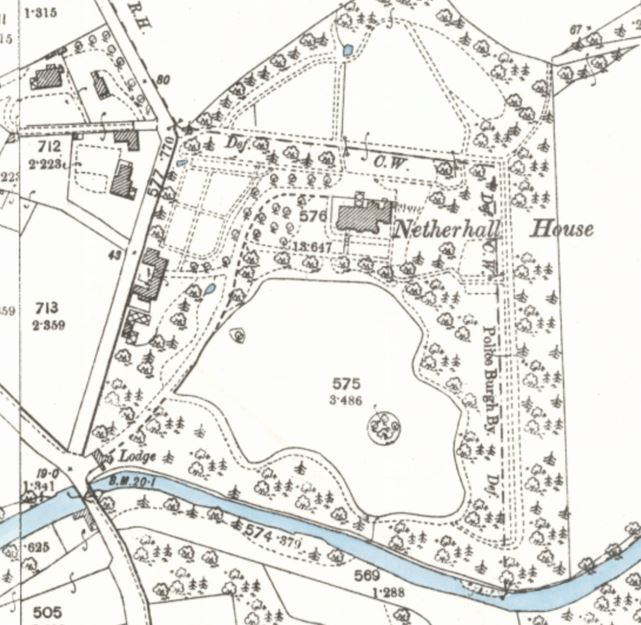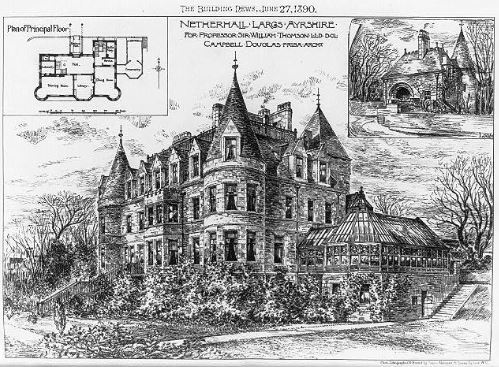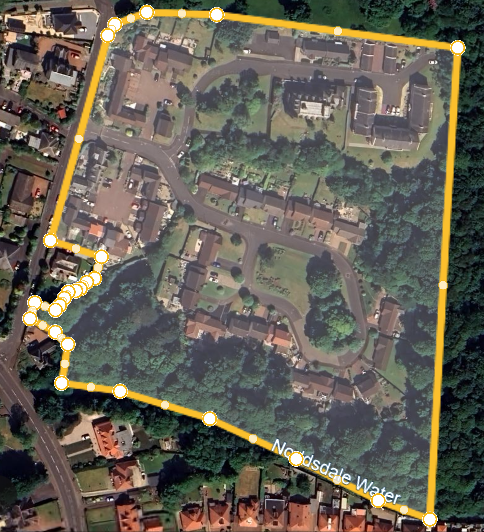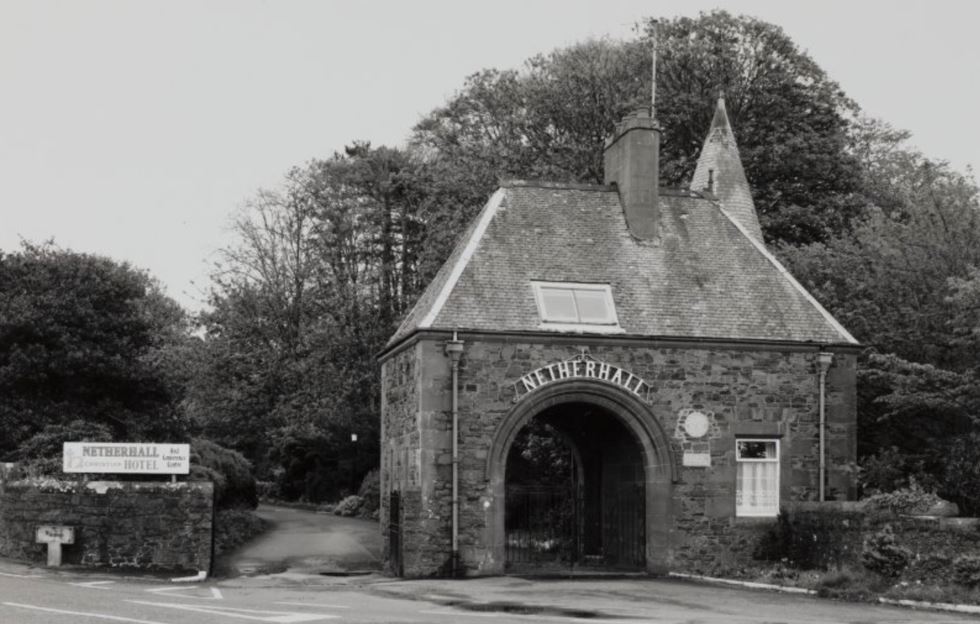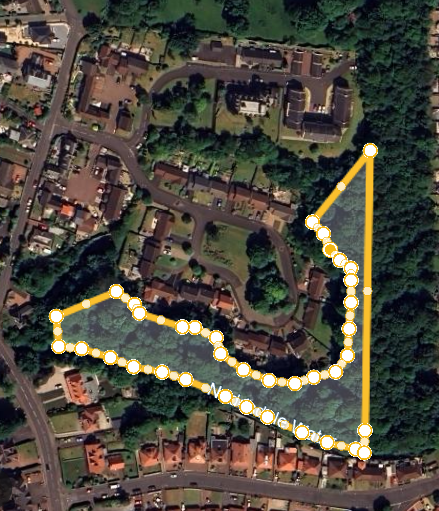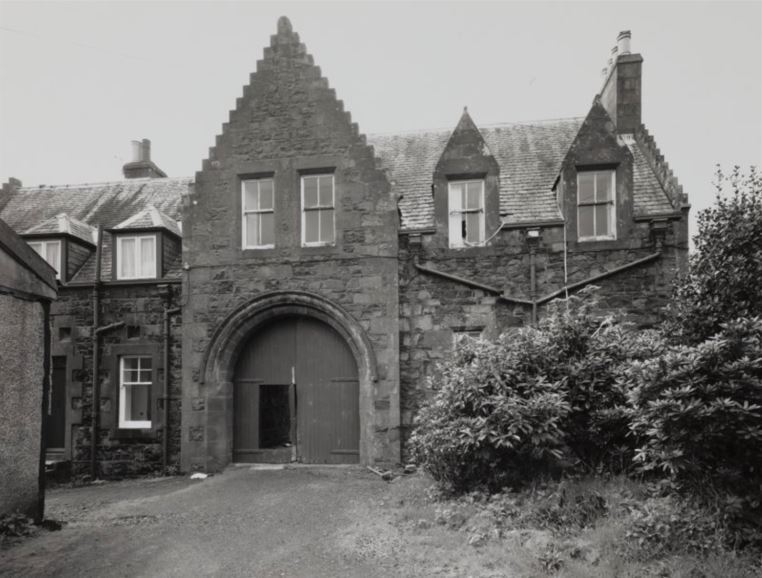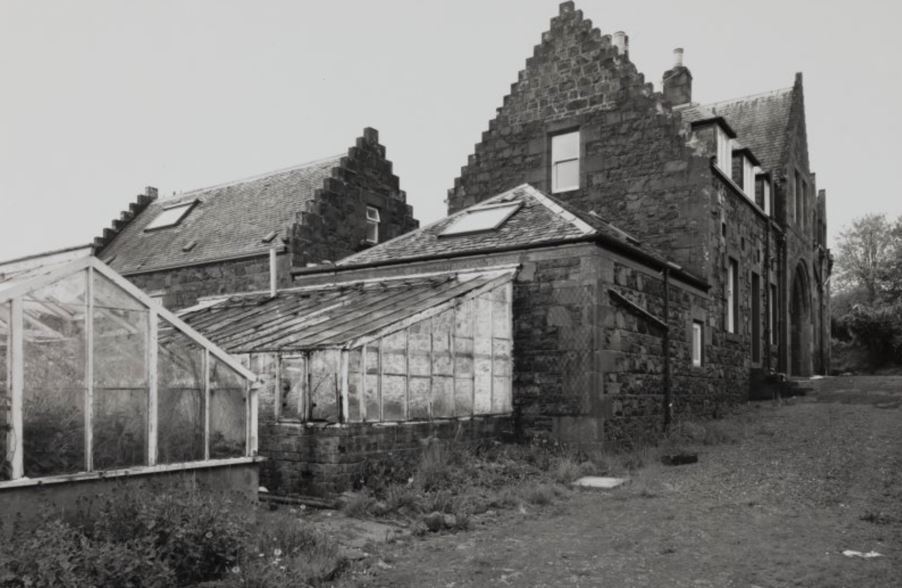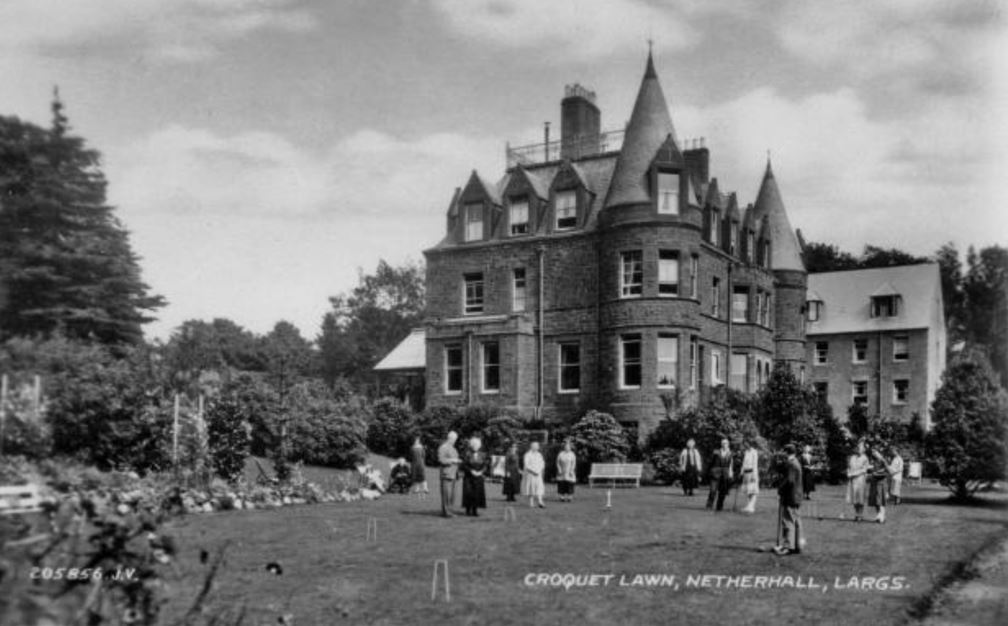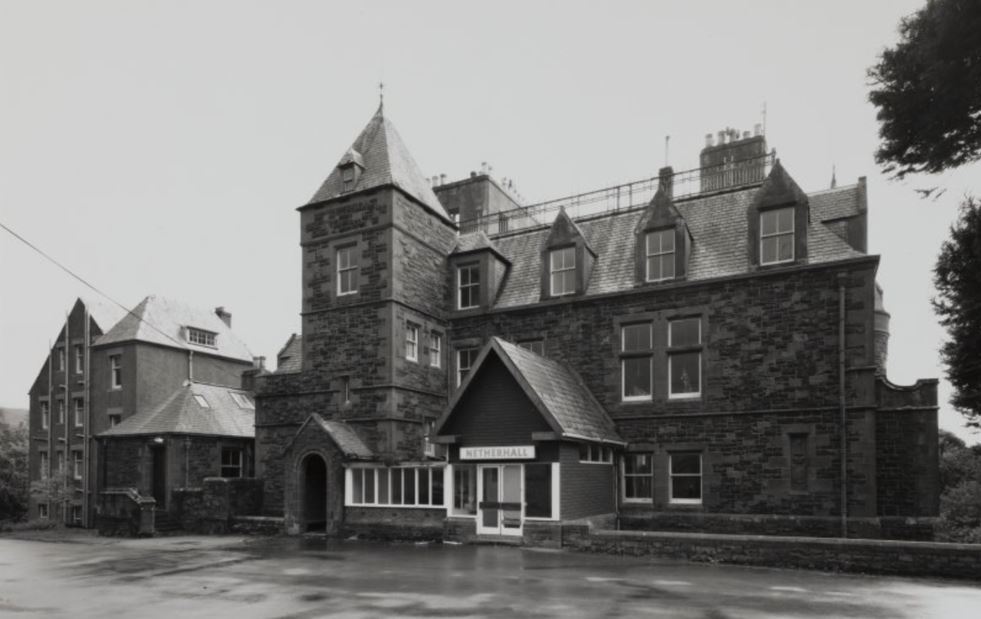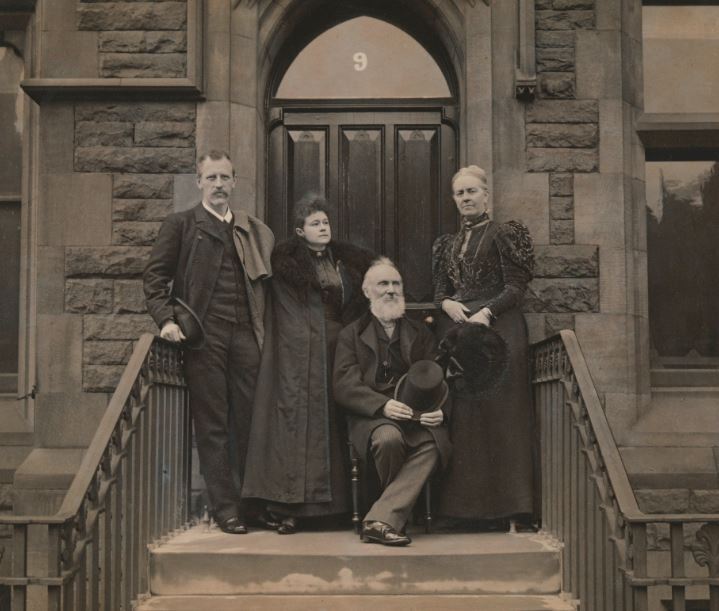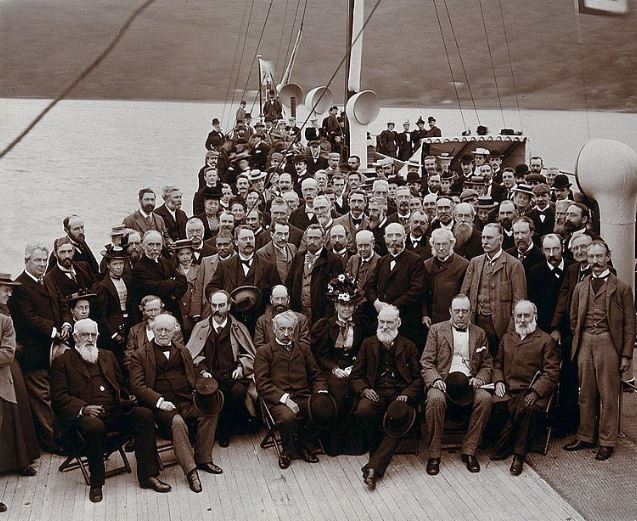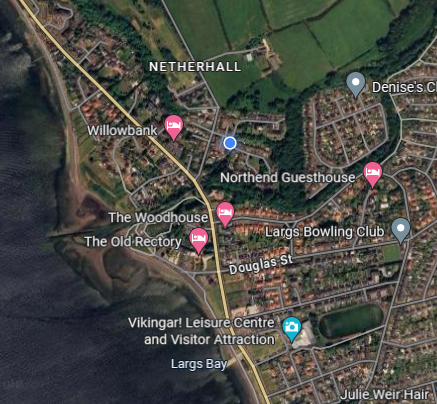
Netherhall was acquired by the much-celebrated scientist & professor, Sir William Thomson, Lord Kelvin (1824-1907) in the late 1800’s (for more information about Lord Kelvin click here). Lord Kelvin then built Netherhall House in the Scots Baronial style in around 1882-1887.
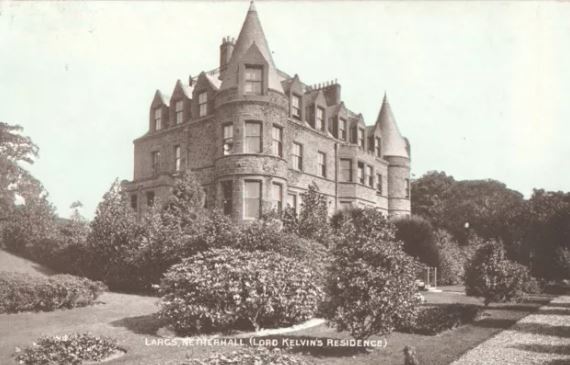
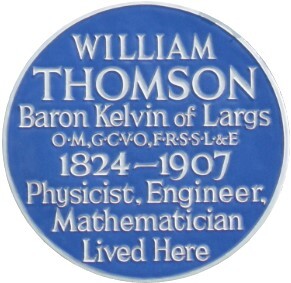
He made it his principal home for many years, dying there on 17th December 1907. Following his internment to Westminster Abbey, his estate remained within the Thomson family up until 1927. It was bought by the business group Netherhall Limited and operated as a private commercial concern. The Mansion and grounds saw various commercial uses (punctuated by brief military use) until the collapse of Netherhall Limited business model, brining the estate and buildings into dangerous & derelict condition.
House builder Barratt Scotland bought the estate in 1988.
Netherhall Residential Estate was created in the late 90’s by house builder Barratt Scotland, encompassing 11 Acres, 2 Roods and 5 Poles of land (as shown below).
The former iconic gatehouse and garden cottage, once part of William Thomsons original 12acre estate, was titled off from the estate footprint and sold privately. While these properties remain in situ, their connection to the estate is historic. They no longer form part of the Netherhall estate footprint.
The development planning stage was difficult for Barratts, and saw strong opposition from local residents of the era. A lasting influence of their action was a curtailment from planned numbers of properties to 66 titles only. This resulted in a section of the estate being undisturbed and unbuilt upon. That area became a private woodland measuring approximately 1.1 Hectare (aprox. 2.5 acres), with Barratts ensuring the maintenance responsibilities for this foot print applied to each of the 66 title holders of the estate.
In 1988, Barratts applied to the Local authority as part of their wider planning application, for a Tree Preservation Order (known as Largs No1) to demonstrate to the Local Authority that they intend to build the residential estate to the curtailed number of plots and to prevent any future building upon the woodland area. This TPO application was receive 6th July 1988, being approved on the 25th October 1988 for this purpose,. It has been maintained active ever since. Curiously, the Largs No.1 TPO was taken to apply to the full 11 Acre development.
This strategic move of the developer, resulted in the creation/continuation of ‘private woodland’, creating an inheritable right/obligation in perpetuity of the title holders to maintain and manage, in addition to the vast common spaces within the residential areas.
Kindly provided photo's of old Netherhall.
The Coach house. This would become numbers 2(right) and 4(left) Kelvin Walk within the South Courtyard.
The Coach house. Look from left to right at what would become numbers 6, 4 & 2 Kelvin Walk within the South Courtyard.
Netherhall House as a hotel & conference centre utilising the croquet lawn in the early 1900's
Netherhall House while operated by Netherhall Limited.
Baron Kelvin with guests Feb 1897
Baron Kelvin with university staff onboard SS Glen Sannox 1886 for his Jubilee
National archive map showing how Netherhall estate was originally laid out.

